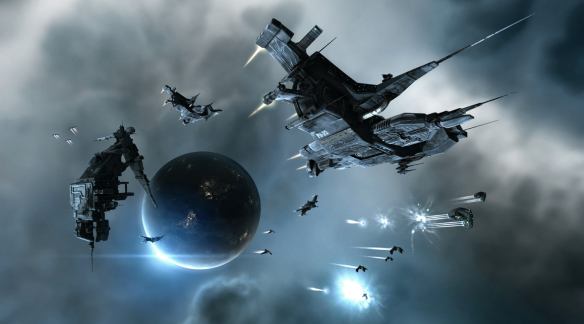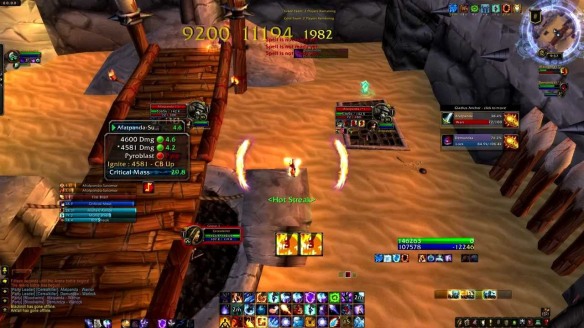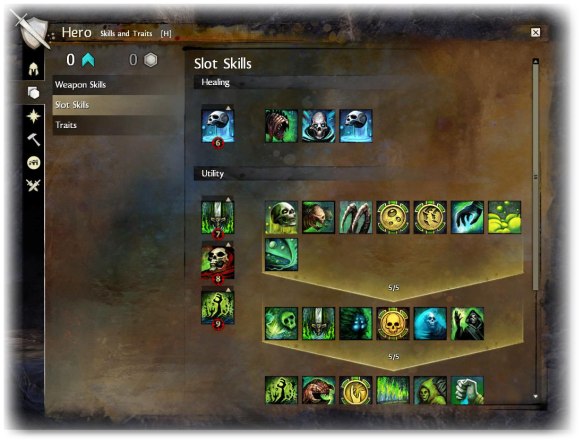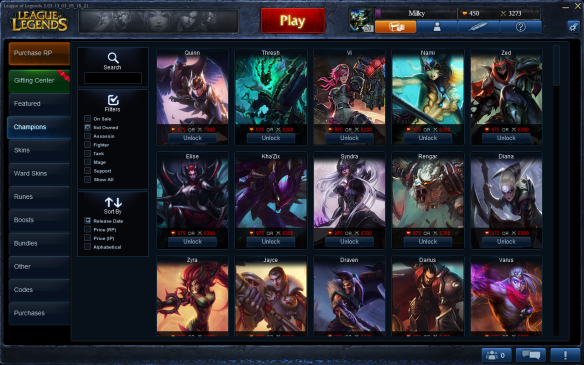
Game design – whether we are talking cards, boardgames, or video games – almost always incorporates the dissemination of rewards.
In poker, the rewards are your opponent’s chips. In Monopoly, the reward is money from the bank. In MMORPGs like World of Warcraft, the rewards are levels, items, titles, and rankings.
Single player games by their nature can function effectively with a limitless bank of rewards. Multiplayer games can as well, either with a cap (like the level cap in many video games), or simply where the progression of one player does not materially impact the progression of another player.
The problem, of course, is in multiplayer games where the progression of one player does materially impact the progression of another player. The famous space MMORPG EVE has struggled with this for a long time – in EVE, players accrue skill points over real time, meaning a player who has been active in the game will always have more skill points than a newer player, something that can result in a lot of frustration in newer players.
EVE addresses this primarily by making the use of skill points contextual – having skill points to fly a titan-class ship won’t necessarily be relevant to flying a battleship. This means a player who has been in the game longer may have more options, but the actual power differential is somewhat less (though still, it should be noted, present).

World of Warcraft has a lot of player progression elements – levels, achievements, and titles, to name some – that don’t usually affect other players. In one area, however, World of Warcraft’s player progression element very much does affect other players, and that’s in player-to-player combat, better known in video gamer circles as “PvP”.
There are a few parallel tracks of player-to-player progression, but other than player skill, the other primary determinant of success are the items a player’s character acquires. Better items mean better capabilities, meaning a character is more likely to win an engagement against another player.
In the more informal tracks of PvP progression in World of Warcraft, this is merely annoying, as with enough time – and tolerance of getting stomped in the face by better-geared characters – you can gain better items.
In the most formal track of PvP progression in the game, that of arenas and their attendant tournaments, this is problematic. A beginning player by definition has minimally effective items, meaning that barring a major player skill differentiation, the player with better items will generally win. Where this becomes a problem is that the reward for winning in PvP in World of Warcraft is…better items that make it even easier to win.
When these gains are the very thing that improves a player’s chance of winning, it leads to a vicious cycle of the strong getting stronger while the weak get weaker. The game no longer measures the skill of the player, but their gear. The prevalence of this mechanic is, frankly, one of the major reasons why PvP is more niche than it has to be in many games.
To combat this, World of Warcraft has the kludge of “seasons”, essentially a periodic reset. Between these seasons, players can essentially catch up to the cap.
While the mechanic of victory making it easier to beat harder challenges works great in cooperative gameplay, it is disastrous in competitive gameplay. Any new player is not only laboring under a disadvantage of experience in the game mode, but is also suffering under a brutal numerical disadvantage as well. Only players who are willing to repeatedly lose for an extended period of time are likely to push past this and into a competitive position. In games where in every other part of the game a player’s chance of success is well above 50% in most endeavors, this represents an unnecessary discouragement that is simply the result of a poorly thought out design choice.
I have been picking on World of Warcraft here, but the truth is this kind of approach is extremely common in MMORPGs and ARPGs – mostly in those games where PvP isn’t really the primary game mode, but rather something developed long after the rest of the design has been set. As noted above, in cooperative or single player gameplay, this kind of “strong get stronger” mechanic is perfectly reasonable and results in a solid challenge-reward feedback loop that encourages players to keep playing.
So, what’s the solution?
One good way to approach this kind of problem is to segregate the rewards from the performance improvements. This can be non-gameplay oriented such as is the case with titles or visual improvements, but there are gameplay-impacting rewards that can still work.

Guild Wars accomplishes this by making all skills more or less of the same numerical calibre, but having different effects which can lead to new options for tactics. To be sure, having more tactical options does offer a kind of advantage, but nothing like the flat stat increases that are so common in most games of this type. Similarly, League of Legends offers the ability to play other champions which aren’t designed to be better, just different.
Another type of segregation, though harder to pull off, is to have the reward be meaningful…just not for a competitive mode. This is tougher to pull off, since players who are playing PvP probably do so because they enjoy PvP, and are understandably going to be less thrilled with rewards that aren’t visible in the game mode they enjoy. This can, however, be an effective way of gently nudging players to try other parts of the game, though done too aggressively this can simply alienate a good chunk of your players.

The feedback cycle of challenge and reward is fundamental to games, but this cycle is radically different depending on whether a game is cooperative or competitive.
This is a major part of the reason why mixing cooperative and competitive modes is so fraught with danger, as assumptions that work well for one do not necessarily work well for another. It’s not an unsolvable problem, however, even in games that incorporate both kinds of modes.




